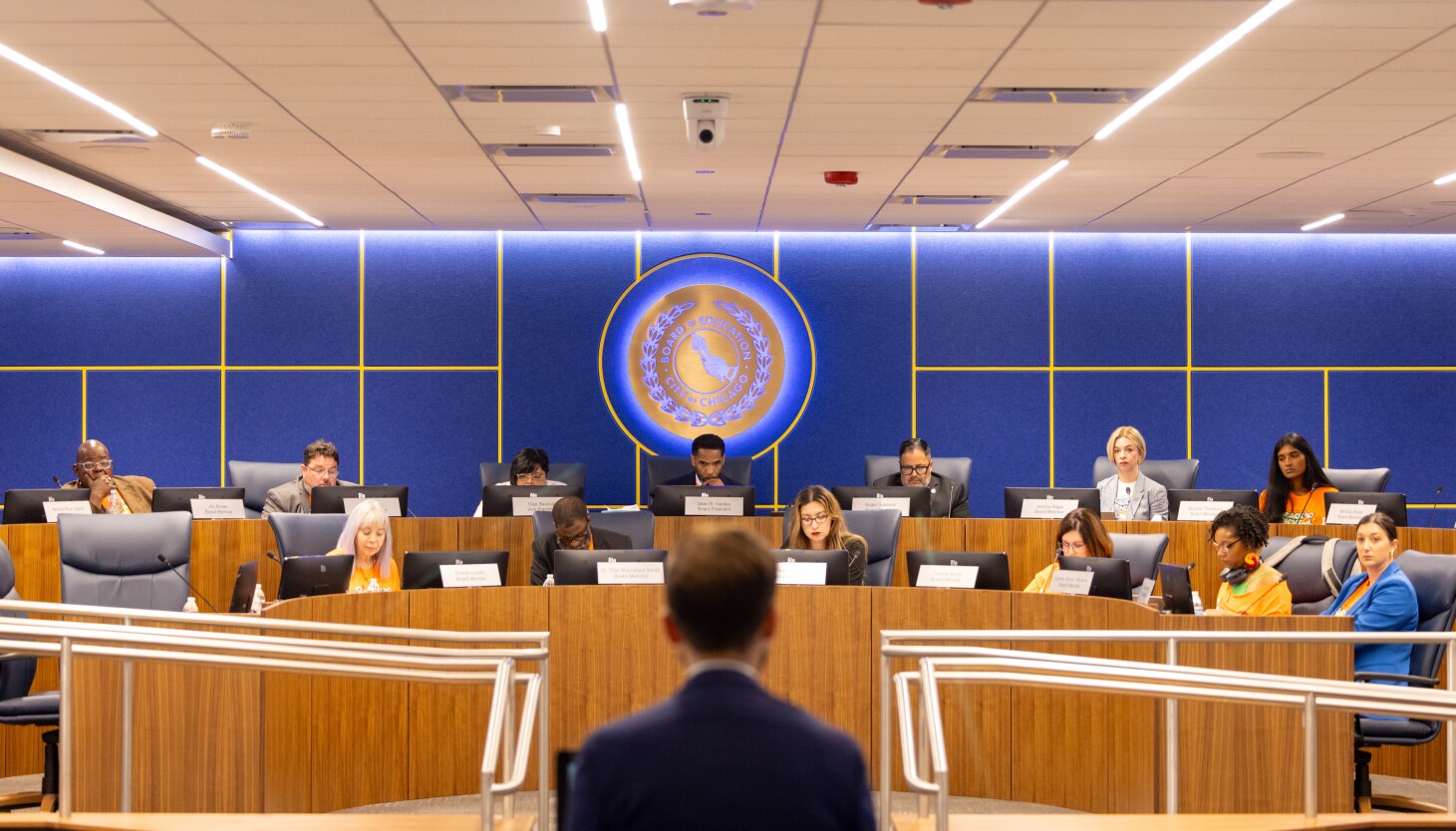Introduction to the Budget Dispute
The majority of the Chicago Board of Education is demanding that the school district’s budget include a controversial $175 million municipal pension payment and a loan to cover costs. This demand comes after interim CEO/Supt. Macquline King’s staff presented their budget proposal, which touted the ability to close a $734 million budget deficit without a loan. However, the proposed budget included the municipal pension payment, but made it contingent on the state or the city sending the school district more than it is anticipating in the budget.
Demands from Board Members
Eleven of 21 members sent a letter to King saying these two items need to be in the budget for the upcoming school year. The signees want CPS to commit to covering the municipal pension payment and allowing for a loan so they can take on debt if needed without having to separately vote for a loan via a budget amendment. The budget only needs a simple majority vote to be approved, but any amendments to the budget need approval by two-thirds of the board members.
Breakdown of Signees
Nine of the 11 members who signed the letter were appointed by Mayor Brandon Johnson. One of Johnson’s 10 appointees recently resigned, and his seat has yet to be filled. It was not signed by Board President Sean Harden, who was appointed by Johnson and only votes in a tie. The other two signees — Ebony DeBerry and Jitu Brown — were elected but were endorsed by the Chicago Teachers Union, which backed Johnson. However, two members endorsed by the CTU — Jennifer Custer and Yesenia Lopez — did not sign the letter.
Concerns Over Budget Proposal
The board members who signed the letter called it a “critical change” that they wanted in the budget proposal before it was posted publicly by Chicago Public Schools leaders on Wednesday. But the budget was posted without these changes. Several of the board members who signed the letter expressed concern that the budget proposal was unrealistic. To balance the budget, CPS is counting on getting $379 million through a process controlled by the city and City Council members. That process takes money set aside for economic development projects out of special taxing districts called TIFs.
Political Considerations
The board members argued that the school district wouldn’t get that TIF money if CPS leaders didn’t agree to make the municipal pension payment. “We are telling the city up front that we’re not going to pay this year, but we expect you to give us the money,” board member Emma Lozano said during Wednesday’s board meeting. “I think that we’re dreaming here. That’s not the way things work. And I’m hoping that there is another budget report that’s going to add the payment because I don’t see how this is going to work.” Members Anusha Thotakura and Brown said CPS need to acknowledge that the process of getting the $379 million is political.
Response from the Mayor’s Office
The mayor’s office confirmed on Thursday that they believe the budget presented Thursday includes risky assumptions. “The TIF [surplus] number that was included was significant,” senior mayoral adviser Jason Lee said. “Certainly, there can be questions about that number — especially in a world in which, even at that number, no [pension] payment is being made … I just don’t think the math is gonna math out.” Lee and Deputy Mayor for External Affairs Kennedy Bartley attended Wednesday’s school board meeting when the new budget was unveiled.
Conclusion
The dispute over the budget highlights the challenges faced by the Chicago Public Schools in balancing its finances while meeting the needs of its students and staff. The demand for a municipal pension payment and a loan to cover costs reflects the difficult decisions that must be made to ensure the long-term sustainability of the school district. As the board prepares to vote on the budget on August 28, it remains to be seen how these issues will be resolved.
FAQs
Q: What is the main issue in the budget dispute between the Chicago Board of Education and CPS leaders?
A: The main issue is the demand by the majority of the board for the budget to include a $175 million municipal pension payment and a loan to cover costs, which was not included in the budget proposal presented by CPS leaders.
Q: Who signed the letter demanding the changes to the budget?
A: Eleven board members signed the letter, including nine appointed by Mayor Brandon Johnson and two elected members endorsed by the Chicago Teachers Union.
Q: What is the concern about the budget proposal?
A: The concern is that the budget proposal is unrealistic and relies on getting $379 million from the city through a process controlled by the City Council, which may not materialize if CPS leaders do not agree to make the municipal pension payment.
Q: What is the response from the mayor’s office to the budget proposal?
A: The mayor’s office believes that the budget proposal includes risky assumptions and that the math may not work out, especially given the significant TIF surplus number included in the budget.


